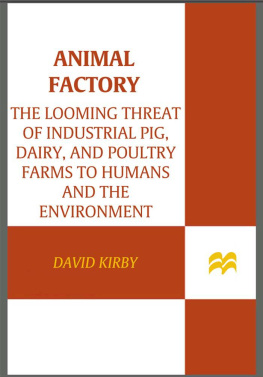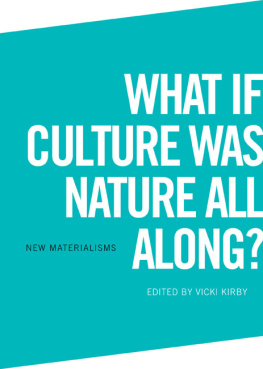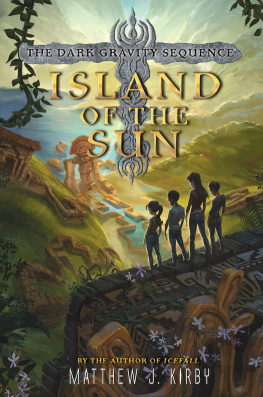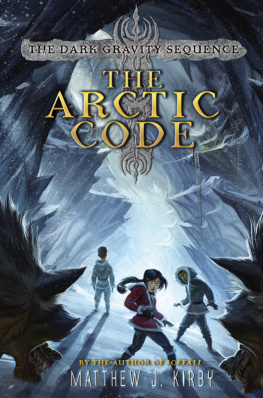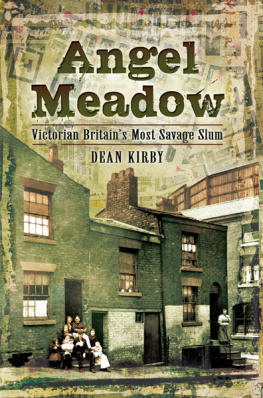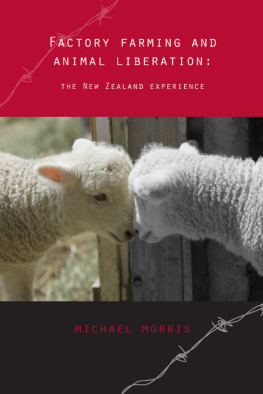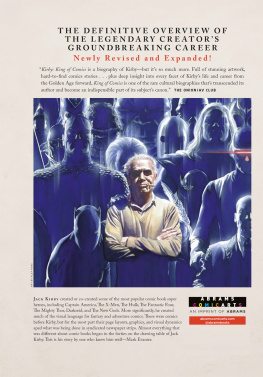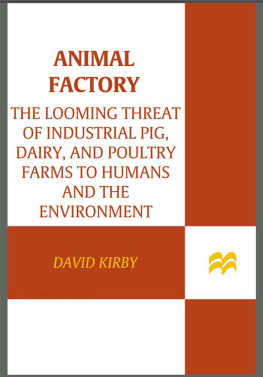Kirby - Animal Factory
Here you can read online Kirby - Animal Factory full text of the book (entire story) in english for free. Download pdf and epub, get meaning, cover and reviews about this ebook. publisher: St. Martins Press, genre: Art. Description of the work, (preface) as well as reviews are available. Best literature library LitArk.com created for fans of good reading and offers a wide selection of genres:
Romance novel
Science fiction
Adventure
Detective
Science
History
Home and family
Prose
Art
Politics
Computer
Non-fiction
Religion
Business
Children
Humor
Choose a favorite category and find really read worthwhile books. Enjoy immersion in the world of imagination, feel the emotions of the characters or learn something new for yourself, make an fascinating discovery.
Animal Factory: summary, description and annotation
We offer to read an annotation, description, summary or preface (depends on what the author of the book "Animal Factory" wrote himself). If you haven't found the necessary information about the book — write in the comments, we will try to find it.
Animal Factory — read online for free the complete book (whole text) full work
Below is the text of the book, divided by pages. System saving the place of the last page read, allows you to conveniently read the book "Animal Factory" online for free, without having to search again every time where you left off. Put a bookmark, and you can go to the page where you finished reading at any time.
Font size:
Interval:
Bookmark:
More Advance Praise for Animal Factory
The industrial production of farm animals is a grim saga of pollution, health risks, and animal misery. Yet in Animal Factory, David Kirby has put together an ingenious book that is highly readable and engaging. The heroes of his book are fighting for a better Americaone in which waters are safe to drink, air is safe to breathe, and traditional family farmers are the sources of our food. Anyone who reads this book will be drawn into their cause.
Bill Niman, founder of Niman Ranch, and Nicolette Hahn Niman,
author of Righteous Porkchop: Finding a Life and
Good Food Beyond Factory Farms
Hurray to David Kirby for exposing the horrific conditions that are so prevalent at Americas factory farms. When I first confronted the realities of factory farming some ten years ago, I knew that I did not want Chipotles success to be based on the exploitation that I saw. While few people actually have the chance to see firsthand where their food comes from, Animal Factory provides a vivid account of the system and the harm it causes.
Steve Ells, founder, chairman, and co-CEO of Chipotle Mexican Grill
David Kirbys new book points to a deeper story than may be apparent to some. It is easy to blame the farmer, or blame the industry for the unintended consequences of our food system. But there are deeper systemic issues that give rise to these problems that we now need to address. Our fast, convenient, and cheap food system gave us benefits that many found praiseworthy. But we failed to anticipate the unintended costs to health, to communities, and to the environment. Perhaps its time to reinvent a food system that is resilient, affordable, and health-promoting for both people and land. Perhaps Kirbys new book can serve as part of a wake-up call for us all to become food citizens to that end.
Frederick Kirschenmann, president of Kirschenmann Family Farms
ALSO BY DAVID KIRBY
Evidence of Harm
DAVID KIRBY
PIG, DAIRY, AND POULTRY FARMS
TO HUMANS AND THE ENVIRONMENT
ST. MARTINS PRESS  NEW YORK
NEW YORK
ANIMAL FACTORY . Copyright 2010 by David Kirby.
All rights reserved. Printed in the United States of America.
For information, address St. Martins Press, 175 Fifth Avenue,
New York, N.Y. 10010.
www.stmartins.com
Library of Congress Cataloging-in-Publication Data
Kirby, David, 1960
Animal factory : the looming threat of industrial pig, dairy, and poultry farms to humans and the environment / David Kirby.1st ed.
p. cm.
ISBN 978-0-312-38058-8
1. Factory farmsEnvironmental aspects. 2. Factory farmsHealth aspects. I. Title.
TD195.A34K57 2010
363.7dc22
2009039692
First Edition: March 2010
10 9 8 7 6 5 4 3 2 1
To my only sister, Nancy Bue,
who taught me how to tie my shoes and helped me to
keep walking forward ever since
A nimal factories affect us all, one way or another. But the impact on some is far greater than it is on most. Among those brave and kind people who invited me into their homes and spent a good deal of time sharing their stories about factory farmingand its alternativeswere Karen and Rocky Hudson, Rick and Joanne Dove, Helen Reddout, Chris and Kristi Petersen, Terry and Linda Spence, Barbara Sha Cox and Dan Cox, Nina Baird, Charlie Tebbutt and Karen Murphy, Bill Niman and Nicole Hahn Niman, Diane and Donny Ward, Kim Ward and Dan Trent, Lynne and Doug Henning, Jordan West, and though I did not make it to her home, Carole Morison.
But those are just some of the people who spent time with me in person, on the phone, or in e-mail conversations. At the near-certain risk of omitting individuals who helped me (my apologies in advance), I want to extend deepest thanks to the following citizens.
In Washington State, there was Mary Lynne Bos, Doug and JoEtte Moore, Jim and Linda Dyjak, Jan Whitefoot, Linda and Kin Cornwall, Florence Howard, Jerald and Lorre Gefre, Larry Fendell, Wally Almagauer and Gene Martin. In North Carolina, Don Webb, Devon Hall and Dothula Baron-Hall and their friend and colleague Elsie, Gary Grant, Neuse Riverkeeper Larry Baldwin, Diane Baldwin, State Rep. Carolyn Justice, and the Raleigh staff of North Carolina Environmental Defense. In Illinois, Nancy Crosby and her family, Diana Smith and Angie Litterst.
In Indiana, Mike Platt, Dianne Richardson, Bonnie Hahn, Sharon Adcock, Allen Hutchison, Ron Chalfant, Tony Goldstein, Jerry Carter, Courtney Justice, Rick Hughes, Seth Slaybaugh, State Rep. Phillip Pflum, State Rep. Tom Saunders, Phil Bir, Bill Grant, Bob and Barbara Hedges, Pat Pichon, Ira Johnson, Jean Witcomb, Gary and Julie Alexander, Bud Ashton, Mike Appleby, Kathryn Petry, Sandra Dalzell, Melinda Thomas, Nell Comer, Jetta Dungan, Barbara Pegg, Alan Hamilton, and Barbara Artinian. And special thanks to Andrew Miller, former director of the Indiana Department of Agriculture, and Thomas Easterly, commissioner of the Indiana Department of Environmental Management.
In Iowa, Lisa Whelan of Iowa Citizens for Community Improvement and the Simmons family of Kirkfield. In Michigan, Kathy Melmoth, John and Peggy Zachel, Lighthawk pilot Ed Steinman, local Sierra Club activist John Klein, and Floyd and Mary Lou McVay. In Arkansas, attorney Jason Hatfield and clients Beth and Mike Green, William and Virginia Vavakos, Whitney Green, Beverly and Tommy Johnson, Sue Mobley, Bob Smith, Carol Fidler, Wendy Wood-Wolber, Chris Rasco, and Lisa Stills. In Oklahoma, Ed Brocksmith, John Ellis, L. D. Stephens, and state attorney general Drew Edmundson. In Texas, Robert Bernays, Waco assistant city manager Wiley Stem, and former Waco mayor Linda Etheridge. In Ohio, Jane Phillips, Dave Weiss, and Dave Blessing, and in California, Bill Jennings, Tom France, and from the Center on Race, Poverty & the Environment, Brent Newel, Lupe Martinez, and Daniela Simunovic, who graciously drove me around the San Joaquin Valley.
From the august world of academy, I heartily thank people at the Center for a Livable Future and the Johns Hopkins Bloomberg School of Health, including Ellen Silbergeld; Shaw McKenzie and Ralph Loglisci, formerly of the Pew Commission on Industrial Animal Practices; JoAnn Burkholder of North Carolina State University at Raleigh; Steve Wing of the University of North Carolina, Chapel Hill; Larry Cahoon and Mike Malkin of UNC, Wilmington; Kendall Thu of Northern Illinois University; and Donald Boesch, of the University of Maryland Center for Environmental Science. At Purdue University, I wish to thank Rod Allrich, Paul Ebner, Donald Lay, Ed Pajor, Allen Schinckel, and others. Other very special thanks go to David Wallinga of the Institute for Agriculture and Trade Policy and John Ikerd of the University of Missouri. Finally, Robert Martin at the Pew Environment Group and former executive director of the Pew Commission on Industrial Animal Production, Fred Kirschenmann of the Leopold Center for Sustainable Agriculture at Iowa State University, and Robert Lawrence, of the Center for a Livable Future at Johns Hopkins donated time and attention to help with the manuscript in its final stages.
Many from the world of nonprofit environmental, farming, and public-health advocacy also helped out with this effort, including Natalie Roy of the Clean Water Network, Dan Klotz of Keep Antibiotics Working, Margaret Mellon of the Union of Concerned Scientists, Michelle Merkel of the Waterkeeper Alliance, Diane Hatz of Sustainable Table, Ed Hopkins of the Sierra Club, Karla Raettig of the Environmental Integrity Project, Ken Cook of the Environmental Working Group, Martha Noble of the Sustainable Agriculture Coalition, and Mary Thomas of the Farm Foundation.
Next pageFont size:
Interval:
Bookmark:
Similar books «Animal Factory»
Look at similar books to Animal Factory. We have selected literature similar in name and meaning in the hope of providing readers with more options to find new, interesting, not yet read works.
Discussion, reviews of the book Animal Factory and just readers' own opinions. Leave your comments, write what you think about the work, its meaning or the main characters. Specify what exactly you liked and what you didn't like, and why you think so.

